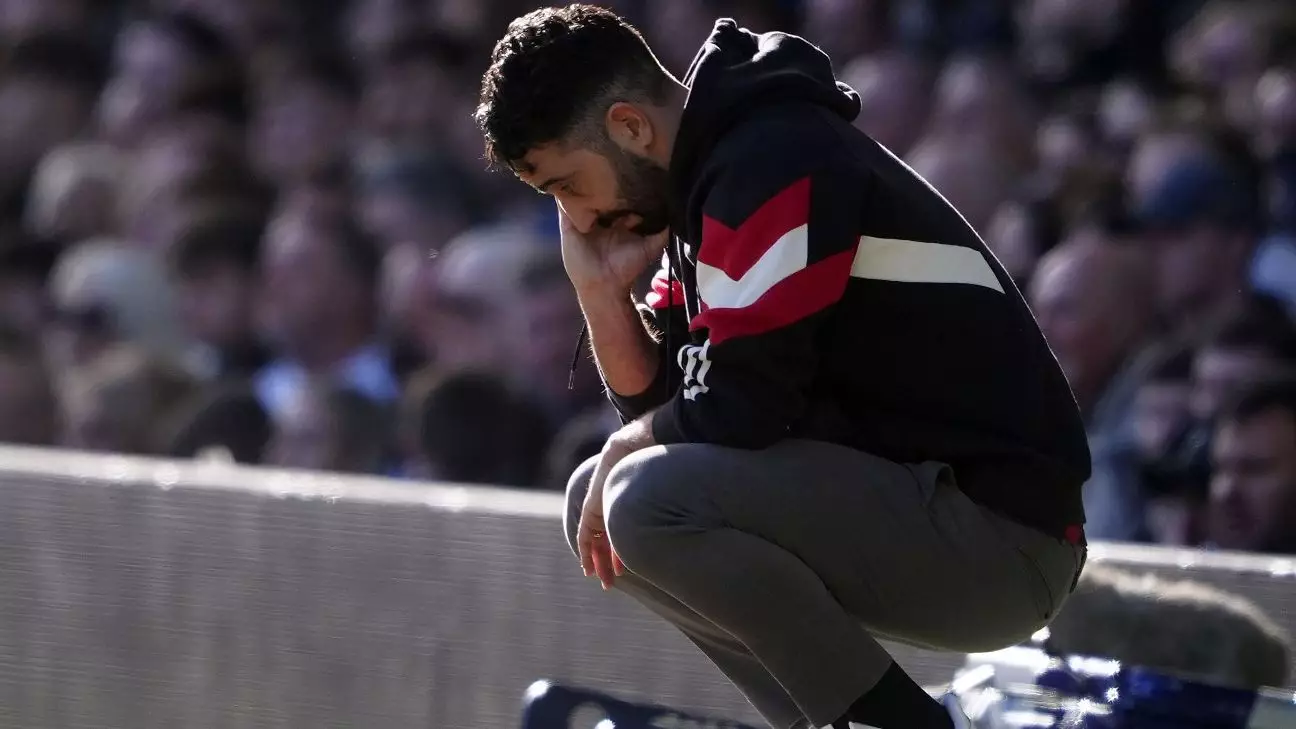The atmosphere at Manchester United has been reminiscent of a challenging puzzle lately, with head coach Ruben Amorim sounding the alarm after yet another lackluster performance against Everton. Despite a commendable rally from a two-goal deficit at Goodison Park that salvaged a point, the underlying issues—including a tendency to begin matches with an alarming lack of urgency—remain a significant concern.
United’s match against Everton highlighted a troubling theme that has plagued the squad: a sluggish start to games. Falling victim to early goals from Beto and Abdoulaye Doucouré—both stemming from defensive lapses—Amorim identified the team’s slow tempo as a primary factor for their struggles. The manager’s frustration was palpable as he noted the statistical infirmities, emphasizing that United has mustered only one first-half goal in their last eleven league matches, with the absence of shots on target in the early stages against Everton being particularly alarming.
In his post-game assessment, Amorim candidly admitted to the challenges plaguing his side, stating, “I don’t know. If I knew, I would change it.” This sentiment encapsulates the sense of urgency that permeates the club; there is a desperate need to rectify these persistent issues if they hope to elevate their position in the Premier League standings, currently languishing in 15th place. The notion of a “day-by-day” approach suggests a temporary mindset, as the team grapples with immediate concerns while the larger picture remains hazy.
The second half against Everton provided a glimmer of hope as United displayed improved belief and determination, resulting in goals from Bruno Fernandes and Manuel Ugarte. The tactical adjustments made at halftime were evident, showcasing a more assertive energy from the squad. Yet, the absence of consistent first-half performances casts doubt over whether these improvements can be sustained against stronger opposition. The season is still early, but inconsistent form raises questions about the squad’s resilience and mental fortitude.
Looking forward, United’s fixtures against Ipswich Town and Fulham present both an opportunity and a test. These matches are crucial for the team to regain some momentum and confidence. However, the question remains: can they overcome their notorious slow starts and assert themselves from the opening whistle? The club’s forward trajectory hangs in the balance as both players and management seek a remedy to their ongoing struggles.
Manchester United is navigating through choppy waters, and beneath the surface, their slow starts paint a portrait of deeper issues requiring urgent attention. With a blend of grit, determination, and analytical reflection, Amorim and his squad must embark on a journey of transformation to reignite their season. What started as a puzzling dilemma could become a defining chapter in United’s storied legacy, provided the team can unlock the potential that lies dormant within.

Leave a Reply